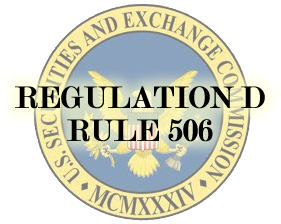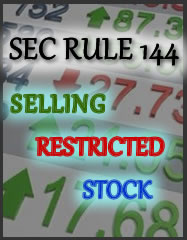 The biggest question now days in regards to the Reg D 506 rule change is has it happen yet?
The biggest question now days in regards to the Reg D 506 rule change is has it happen yet?
My phone has been ringing off the hook lately with clients wanting to know if they can now start cold-calling over the telephone for investors, put up a new website to advertise their stock offering, or put up a billboard along the freeway to promote their latest tech venture to attract investors.
All of these inquiries have been prompted by the recent JOBS Act signed into law by President Obama earlier this year. The JOBS Act (short for the Jumpstart Our Business Startups Act) – at least the part that has my phone and e-mail lighting up – directed the SEC to ease its long-standing prohibition on solicitation of investors involving private offerings conducted in reliance upon the safe harbor federally-covered exemption known as Rule 506 of Regulation D.
It directed the SEC to allow for public solicitation of securities offerings conducted under Reg D Rule 506 – potentially a big deal for entrepreneurs trying to find seed capital – so long as the offering is limited to accredited investors only (as many seed rounds typically are anyway). The new law gave the SEC what you think would be a “reasonable” time to adopt the new rule change: 90 days. Never mind the fact that the SEC has never adopted a new regulation or rule so quickly, but this is the Internet Age, right?
Well, to jump directly to the point: The JOBS Act has now been the law of the land since April 5, 2012, but the SEC has yet to adopt a change to Regulation D Rule 502(c) allowing for public solicitation of accredited investors. To its credit, the SEC did recently publish PROPOSED rules (see Release No. 33-9354) but these have yet to be adopted. As a result, the law still hasn’t changed. IT IS STILL UNLAWFUL TO COLD-CALL ACCREDITED INVESTORS or any other investors for that matter.
However, when the day comes and the law change takes effect, there will be a lot of happy entrepreneurs eager to try on the new soliciting rules in order to tell the world about their opportunity.
Keep checking my site, because I keep a constant ongoing watch for the Reg D rule change. If you have any comments on this subject let me know below. If I can help you with any of your private offering needs; contact me today!





